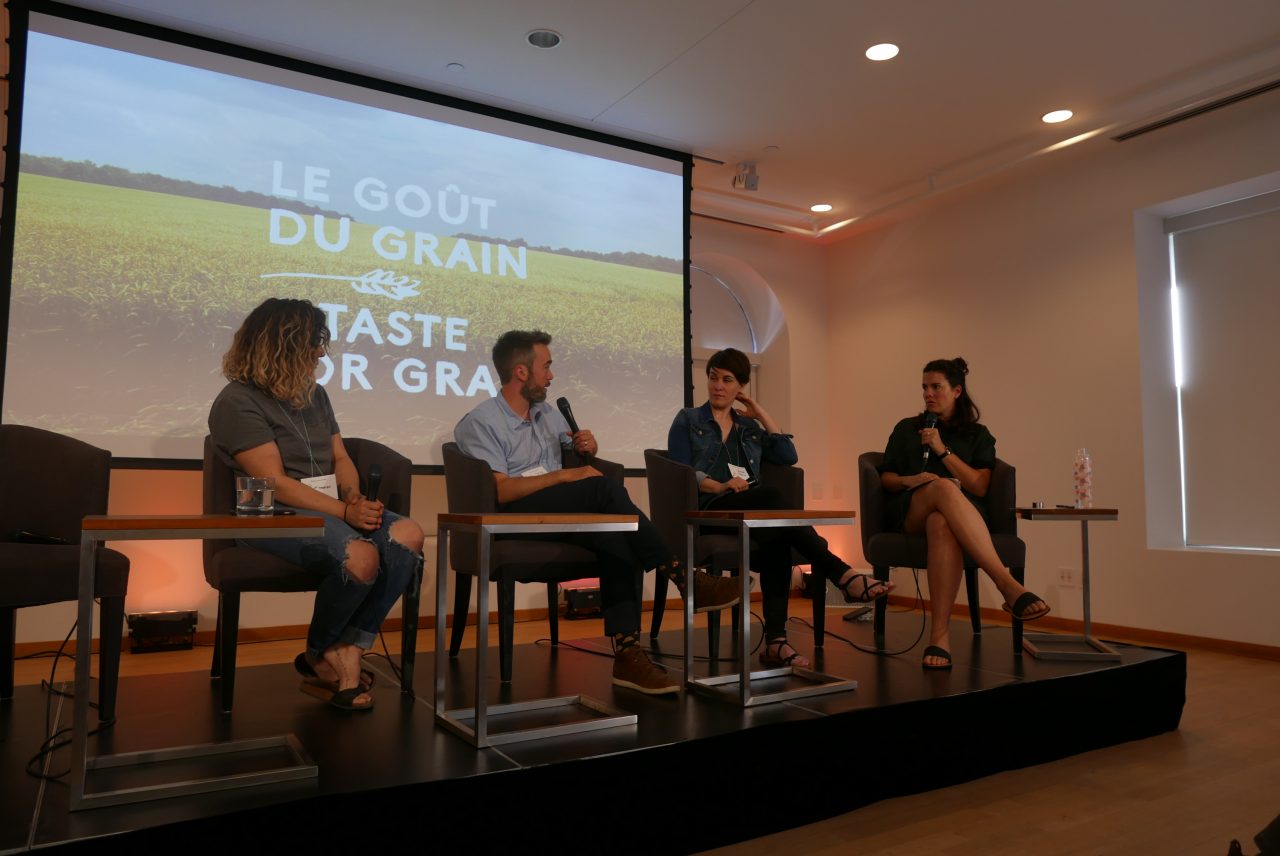How to make bread that fits with your lifestyle?
A Taste for Grain is an initiative by Marc-André Cyr and Dominique Lalonde. It gathers informed onlookers, amateurs, and professionals around a conversation about grains, taste, flavor, food, bread, beer, and anything in-between that calls for an earth-to-table process involving grains.
The third edition of the event is an up-levelled version of that of the two previous years, spreading on a two-day conference, gathering, and exhibition, with guests from as far as California and France.
In her conversation with leading artisan bakers from Québec, Genevieve Vezina-Montplaisir, from the independent food-culture magazine Caribou, addressed baking from the perspective of quality of life.
The question is: “How can we — as home or professional bakers — maintain a healthy lifestyle while baking the bread we want?”
As Amy Halloran, author of The New Bread Basket, pointed out, the question is probably more about baking the “right” loaf as opposed to the “perfect” loaf.
New methods and fermentation techniques — mostly cold fermentation — can have a major, positive impact on both the baker’s lifestyle and her breads.
When family enters the bread formula
Martin Falardeau has more than 30 years of baking experience. He shared that his new bakery, the Meunerie Urbaine, meets the challenge of delivering amazing bread while maintaining time and energy for family. His bakery hosts a mill, and the grain that goes into the loaves is milled just-in-time to create flavors that go beyond those that fermentation alone can achieve. (For the curious people out there, you won’t find a website or official Facebook page for the Meunerie Urbaine. You’ll have to visit in Montréal!)
Family, as it happens, keeps bakers doing what they love. It also urges us to change how we see bread baking in 2018.
Mélissa Voghell went digital when she started La fille du boulanger. She created an e-commerce that manages the bread baskets she sells to clients. They log in online, preorder their breads, and Melissa only bakes was has been previously sold. No waste. This fosters a new customer perspective on what it means to eat and buy bread. It’s a new relationship that engages all people who care for soil, grain, flour, bread, and good food.
Albert Elbilia, from Merci la vie bakery, decided early on that his bakery would serve — rather than harm — his 5-children family. No night shifts. Some of his sourdough breads benefit from 90-hour bulk rise, leaving him time to enjoy every minute he bakes.
As bakers, we can play a great role in creating new sorts of relationships in our community. That’s because bread has the power to bring us back to that place that’s truly human.

Building a taste for whole-grains
In a discussion with Amy Halloran, Dawn Woodward, from Evelyn’s Crackers in Toronto, shared that customer culture is now evolving toward a greater attention and awareness towards whole grains. As a promoter of organic, stone-ground whole grains, she makes crackers that help her build a taste for whole grains.
Teaching and education, of both customers and bakers, is a major part of this evolution towards a better understanding of the link between soil, health, and food through whole grains.
Author Michel Lambert, who wrote five volumes about the history of family cooking in Quebec, says that, “we need to think deeply how we want to bring nature closer to us.” In modernity, agriculture is a means that help humans maintain “control” over nature and culture.
Balance rather than control should be the key-word. A leap forward would be that we make bread with beans, seeds, and grains the way that the indigenous people that lived where we live 10,000 years ago did.
As a chef and co-owner of Automne Bakery, Seth Gabrielse shared the idea that, “chefs and bakers have a responsability to introduce products in a format which will attract the public.”
Not surprisingly, artisans, chefs, and bakers tackle the challenge of selling what they do, and engaging their customers in a conversation that will carry them all together towards a culture of innovation and experimentation.
Taste is as much a matter of culture than of curiosity.
A Taste for Grain brings that conversation further.